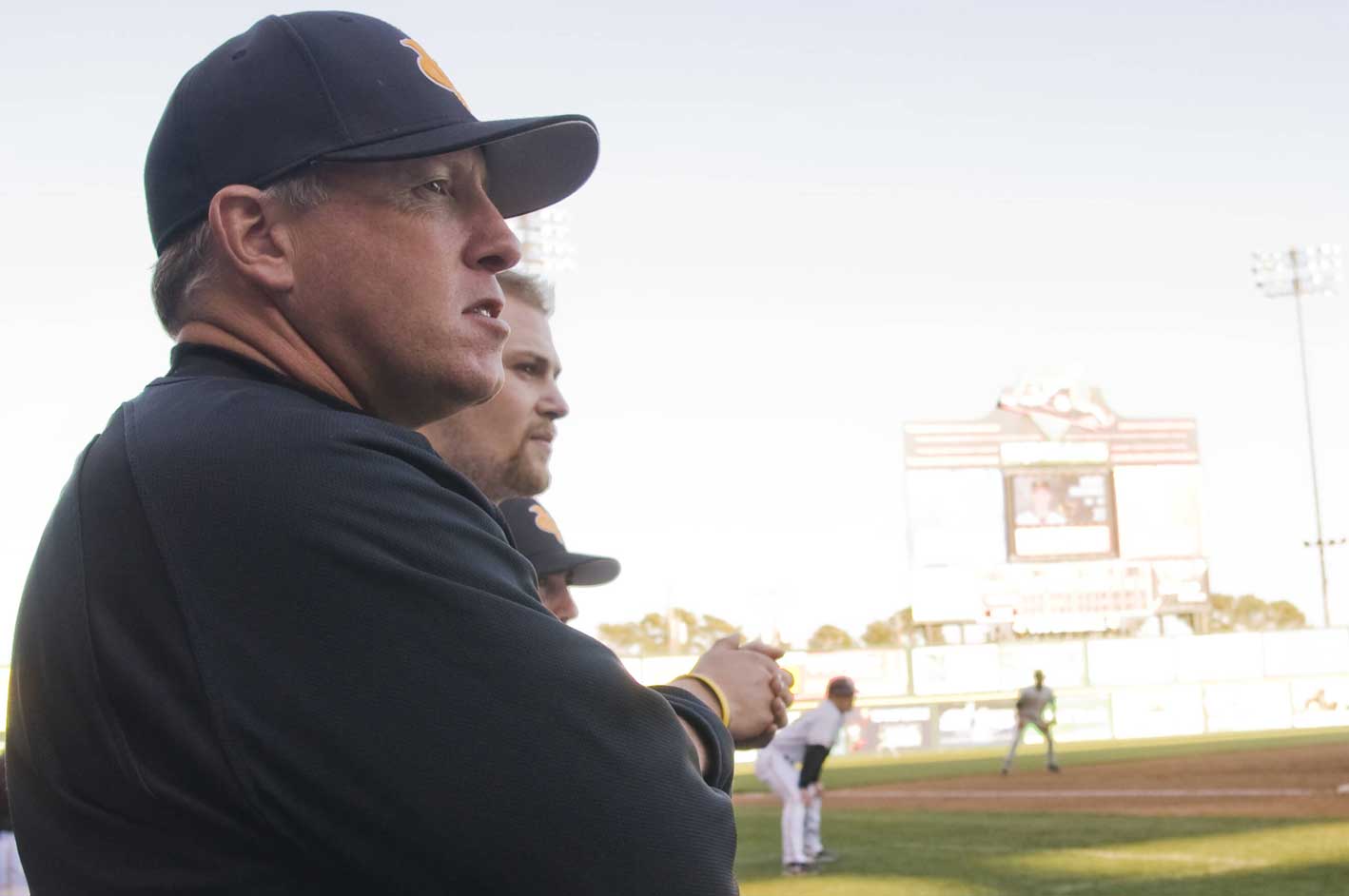Keyes leaves behind lasting legacy at VCU

Paul Keyes won 603 games in his 18 years at VCU, making him the school's all-time winningest coach.

Jim Swing
Sports Editor
Follow Jim on Twitter
COMMENTARY
People conventionally have a scroll’s worth of sentimental memories and tender stories in days like these.
I don’t but here’s what I do have:
I only met Paul Keyes once.
The first time I ever visited The Diamond to cover a game was in May of last year. I didn’t regularly cover VCU baseball and didn’t really know much about the team.
It was the third inning and VCU needed a jolt, so naturally Keyes tossed aside his hat and sunglasses, stormed onto the field, kicked some dirt around and argued a call that wasn’t even that arguable.
VCU went on to win that game 9-1, and since he was ejected, I had to interview an assistant instead.
The next time I made it out to a game was for the program’s 1,000th win. I went up to talk to Keyes since he was responsible for over half of those wins.
With a lot of coaches, you walk up to them, introduce yourself — or are introduced by a sports information director — and then you ask your questions. Not Keyes.
He was the one firing questions at me first. Keyes wanted to know what year of college I was in, where I went to high school and other personal things most coaches don’t care to know about a reporter. He was a highly successful coach who was also genuinely personable.
It would be the first and last time I interviewed Keyes.
Still, my knowledge of Keyes and VCU baseball was thin. That was until the past couple of days in the wake of Keyes’ death after a battle with cancer. To see the outpouring of emotion and support of VCU’s winningest coach, to view the hundreds of picture of high-fives on Twitter, representing Keyes’ number and to hear the stories and see who he really was, it’s obvious: Keyes was VCU baseball.
“The biggest thing I learned from coach is that the program is about the players,” VCU interim head coach Shawn Stiffler said. “And the program is really for the players.”
Keyes was also about preparing the players. After team meetings he would tell his team to prepare themselves in the case of the coaching staff leaving for an extended period of time. And then he would tell them to make sure they come back better than they were before.
He was preparing them for a possible storm. Keyes took a leave of absence back in April after he had been diagnosed with cancer.
“Who knew he was preparing us for this,” Stiffler said.

Keyes put 18 years of his life into VCU baseball. His 603 career wins, eight NCAA Tournament appearances and five Colonial Athletic Association championships prove it was time well spent.
From seeing and listening to his colleagues and players, you can tell Keyes was not only a coach, but also a mentor and a guy that made an impact on people.
“I could tell he was that kind of guy that had a lot of wisdom,” said Ed McLaughlin, who’s been VCU’s athletic director for just over three months.
Keyes was known as a baseball soothsayer and a coach that liked to think outside of the box. Stiffler recalled him as the best tournament game manager he’s ever seen, with the ability to win that day and take any one game.
But what Keyes left at VCU is longer lasting than just one game. He leaves behind a legacy and a name that forever will be connected with VCU baseball.
“He’s a legend,” Stiffler said. “Not only in this area but all of college baseball, and really was a guy that put Richmond baseball on the map in a lot of ways.”